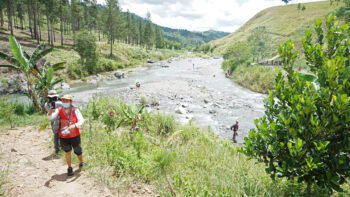
MALAYBALAY CITY (MindaNews / 25 February) – Life as a human rights worker during Martial Law was marked by constant encounters with ordinary people recounting stories of arbitrary arrest, torture, “salvaging” (a euphemism for summary execution), and other abuses by security forces. As writer and documenter, the thankless job of interviewing victims and witnesses and listening to their sad, tragic stories fell on me.
The worse part was taking photos of dead and wounded victims, a rather surreal initiation into the world of photography. It felt repulsive at first, but my hands eventually learned not to quiver at the sight of blood and death – sometimes a decapitated body. Somebody has to take the picture, I would remind myself before going to the place of incident – a farmer’s hut, an unmarked grave, or a funeral parlor.
In addition, I had to attend to journalists and other individuals and groups asking for details about particular incidents of human rights violations. Some would pay a visit at the office while others would call from Manila through a landline in the convent that was likely tapped. (Our office was housed inside the convent attached to the Saint Augustine Cathedral in Cagayan de Oro City.)
This accompanying task enabled me to memorize the details of each case. For example, whenever colleagues asked about the case of a political detainee I could immediately give them the date and place of arrest, specific charge, court handling the case and name of the judge, his/her lawyer, etc. without looking at the files. Adrenaline rush caused by the nature of the job? Maybe it’s just the cigarettes and coffee.
Time has blurred most of the names and faces of the victims. Yet, there are stories that remain vivid in my memory. One of them is that of a 9-year old boy and a 75-year old man who were killed by soldiers and Tadtad fanatics while working in their farm in Balingasag, Misamis Oriental.
Another heart-wrenching story is that of a mother whose two sons were arrested while plowing their field and “disappeared” while in military custody, never to be found again. For several weeks after, she would visit the office hoping to get some good news, or perhaps just to listen to words of comfort from us.
I was so touched by that incident that when the World Council of Churches solicited stories for a book about human rights violations in the Philippines, I chose it as my contribution along with an account of the months-long food blockade in Claveria, Misamis Oriental. The compendium was referred to as the “Black Book.”
Of course, there were several other stories, more than those who didn’t see the real face of the Martial Law regime could imagine.
(MindaViews is the opinion of MindaNews. H. Marcos C. Mordeno can be reached at hmcmordeno@gmail.com.)







